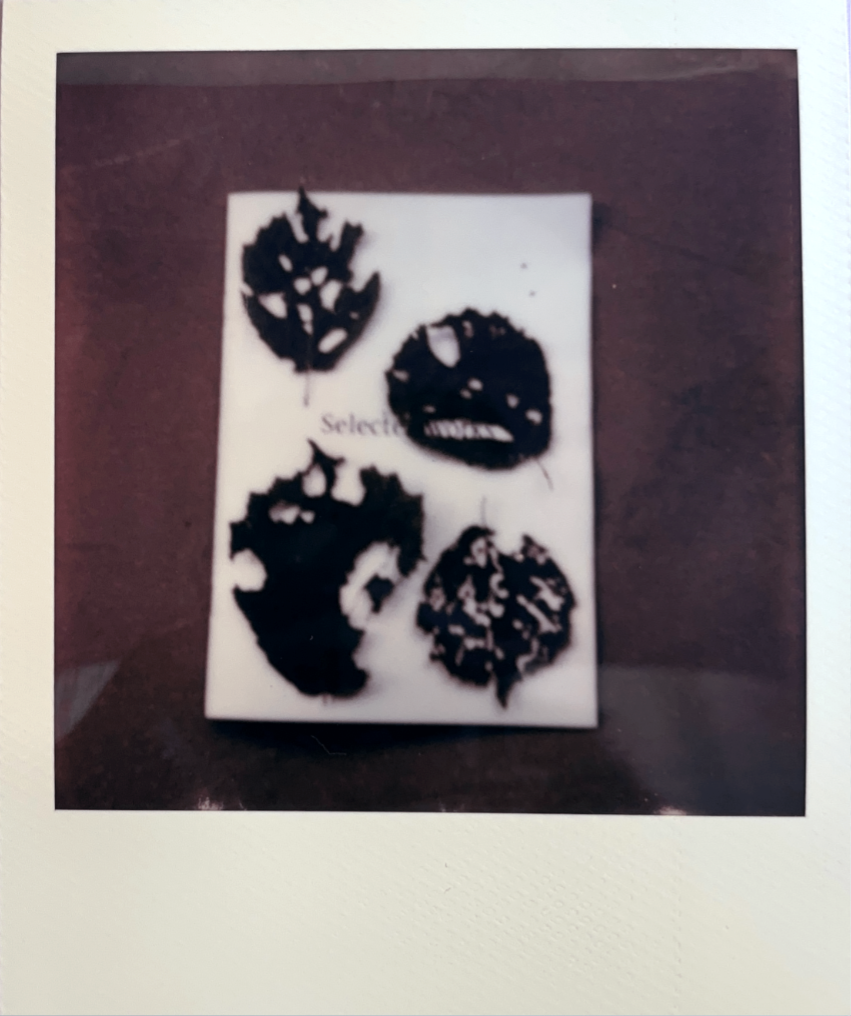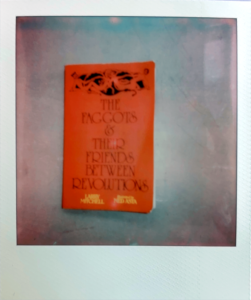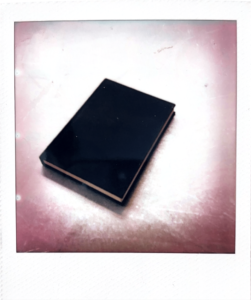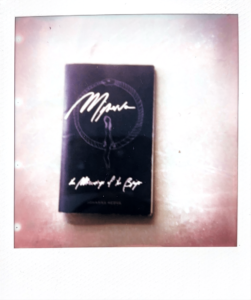The residents of Cripping Cultural Work
“Gaps are archives of survival, not absence”
Earlier this year MaMA invited four Rotterdam based disabled/chronically ill cultural workers and/or artists to apply for our research residency Cripping Cultural Work. This seven month long residency aims to take a closer look at normative ideas around time, productivity, and our bodyminds and how these concepts shape the work and pace of cultural institutions. Six different objects/associations/references, four residents and two MaMA staff members formed the starting point for the very first day of the residency. Meet Yoana, Ari, Ashley and Flora.
 Yoana
YoanaYoana Buzova is a Bulgarian-born artist and educator, navigating the world with a body shaped by ongoing maintenance and adaptation. A proud jack of all trades, she is a repair witch, magnetic tape aficionado, soapmaking alchemist, community hairdresser, gardener, and crooked stitcher. She creates installations, performances, and tools that explore frugality, accessibility, transformability, and listening. Her works invite brief encounters and shared fictions, attending to the overlooked, the broken, and the quietly resistant.
Gaps
Crip time spills out: late, slow, nonlinear, breaking the clockface of work-as-worth. The gap isn’t empty, it’s swollen with meds, care, sweat, silence, collapse. Gaps are archives of survival, not absence. Caregiving is labor: unpaid, unseen, bleeding into dawn. Work gaps? That’s when the bodymind said no and meant it. That’s when systems cracked and we fell through, but tried softening the blow. In sick, care, deviant time, the CV stutters, skips, and refuses a tempo. This is not failure – call it resistance or just call it Tuesday. Fuck productivity. We are working in the gaps, through them, as them.

Ari Ralph is a queer, South African transdisciplinary artist, activist, archivist, researcher, community programmer and writer. They mostly work by incorporating socio-political elements into their works through non-linear forms of expression and narration. They also work with social critiques and visual narratives, specifically within discourses of race, gender, sexuality, and identity. Within their creative practice, Ari works with a wide range of materials but specialises in textile work, writing, audio-visual and sculpture.
 Ari
AriGrey Areas
The Faggots and Their Friends Between Revolutions is a fable and manifesto that celebrates intersectional solidarity and resistance in a world ruined by imperialism, separation and violence. Here we learn that the only way to grow and to be, is together. Embracing campiness as resistance to a world that wishes for silence, celebrating grey areas at a time where everything is polarised.

 Ashley
AshleyAshley Nkechi Igwe is a Black, queer, chronically ill sociologist and writer whose work emerges from lived experience. She draws on Black feminist thought, mad studies, crip theory and West-African spiritual knowledges to explore how slowness, incoherence, illness, and grief can become sites of knowledge, not problems to be solved. Her approach to combining sociological insight and poetics is relational, imaginative and political. She favours rupture over resolution and tenderness over performance.
To show up messily
Rather than translating experience into something palatable, I’d like to protect it as a refusal to settle. I am committed to slowness as method in a world demanding hyper-productivity and I pursue a politics of care that is practiced, even when it’s uncomfortable. I listen deeply and hope to create from a space of not-knowing that invites others to show up messily and without apology.

flora writes, makes drawings and organizes different moments that bring people together. she looks at the influence of (and relationships between) bodies, and forms of embodiment – understanding the body as an archive that hosts different layers of feeling, experience, symptoms and histories. sustaining a brain injury in 2019 and how it changed her own somatic experience, is part of this. flora’s praxis folds around grief, deep rest and crip time, and parallel to this she is slowly being initiated into the field of death care work.
 flora
floravoices
as i enter our shared space, i am carried by the voices of others, Tricia Hersey’s rest is resistance; Johanna Hedva’s a decade of sleep, and their question: how to throw a brick through a wall when you’re too sick to get out of bed? Sophie Strand’s the body is a doorway echoes. i carry with me Audre Lorde’s questionnaire to oneself, and her words about practicing to love and resist at the same time. in the face of unfolding genocide, i keep returning to Sanah Ahsan, who reminds us that “the work of remaining close to the heart and body is a central lifeline throbbing through the veins of any meaningful resistance.”

little shifts, deep breaths
A question which will accompany me throughout this residency period and beyond, is how to extend this very situated project, its values and its softer, slower pace, into our everyday work reality. By placing care at the core of institutional work, we hope to move our understanding of accessibility from “giving access to” towards dismantling the very structures that render some ways of doing/ sensing/ being “uncommon”.
The work of Adrienne Maree Brown and Rae Johnson will serve as reminders to honor what happens on the small scale; our little shifts, deep breaths, subtle gestures and quiet understanding.
— Felicitas Lenz, Head of Learning & Engagement
a million tiny glimmering moments
Do What You Want – co-edited by my favourite food writer, Ruby Tandoh – is a relatable collection of essays, poems, recipes, and illustrations on mental well-being, body acceptance, queerness, chronic illness, and more. In the introduction, Ruby asks ‘What’s the point?’, when the world is the way it is and life is full of pain, with one obstacle after another. Her answer— ‘The point is the joy of a sizzling cheese toastie, or a hard fought-for recovery, or the love of a close friend. The point is the collage of a million tiny glimmering moments of happiness in our difficult lives. Don’t let it out of your sight.’
— Charli Herrington, Head of Exhibition Programs
 Felicitas
Felicitas Charli
CharliHow do normative ideas around time and productivity shape the work of cultural institutions? What if accessibility was the starting point for developing artistic programs? What would cultural institutions look like if they were reimagined to center the needs of our bodyminds? At present, disability and chronic illness are systemically underrepresented within the cultural sector, both in Rotterdam and more widely. The intention of the project Cripping Cultural Work is to contribute to a positive shift towards a less ableist field, by re-examining our own institutional practices and imagining alternatives. The primary focus of the residency is to conduct independent research on a topic of choice, informed by the context of the residency program. In October 2025 the residency will bring some of its questions into MaMA’s exhibition space. For more details and program information, please follow our social media or subscribe to our newsletter.
This program is developed by MaMA’s Felicitas Lenz & Charli Herrington and supported by Stichting Bevordering van Volkskracht. Are you interested in joining crip community gatherings? Please email felicitas@thisismama.nl to be added to our mailing list.

